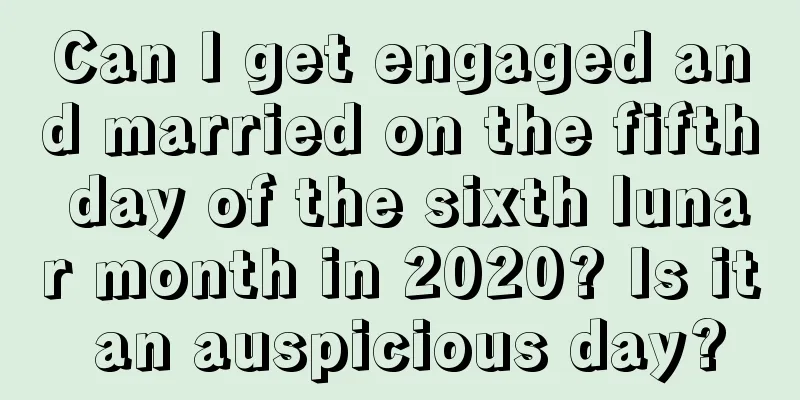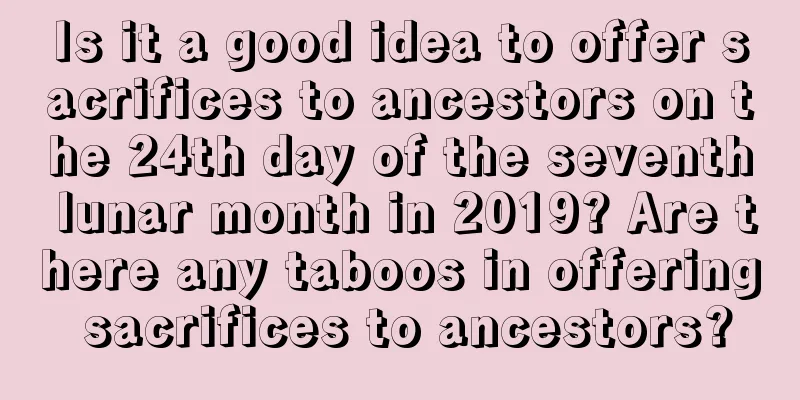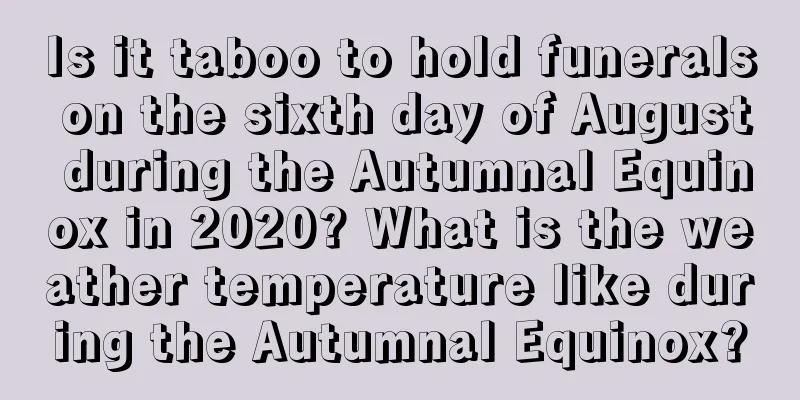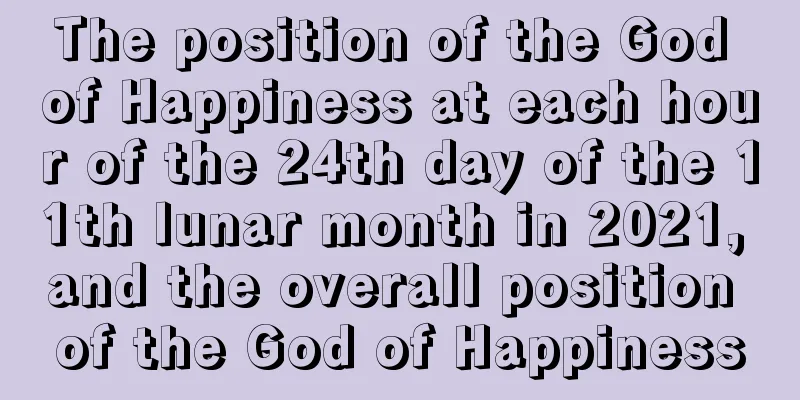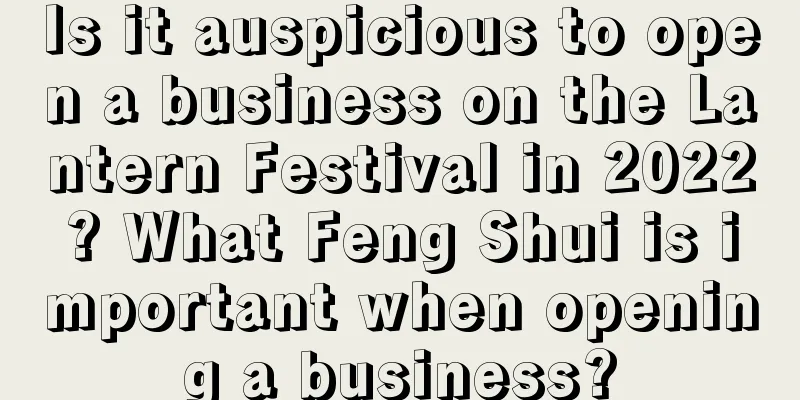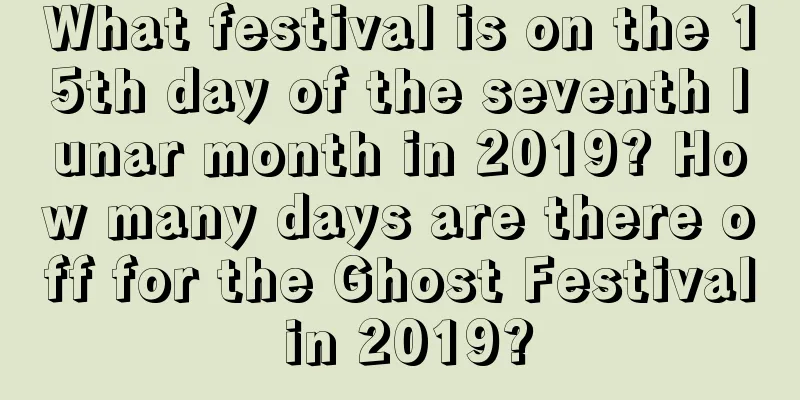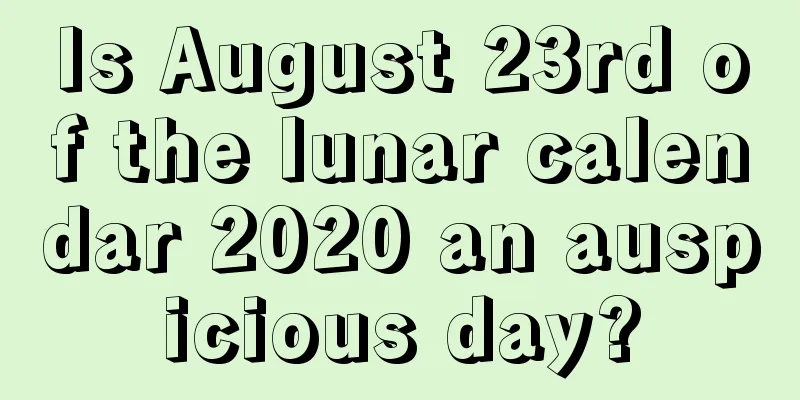Is Qixi Festival really not Valentine's Day? What exactly is Qixi Festival?

Introduction: China has been a traditional country since ancient times, so it has many traditional cultural festivals, and Qixi Festival is one of them. So is Qixi Festival really not Valentine's Day? What kind of festival is Qixi Festival? In the seventh month of the lunar calendar, there is a flag waving on the earth; in the seventh month of the lunar calendar, there is a desire surging in the sky. Visit the Fortune Teller website to learn more details about the seventh lunar month of 2018.Isn’t Qixi Festival really Valentine’s Day?In recent years, businesses have hyped up the issue and the media has failed to provide the public with correct guidance, causing the public to believe that Qixi Festival is Valentine's Day, and there is no way to argue with it.Speaking of China's Valentine's Day, the "Lantern Festival" on the fifteenth day of the first lunar month is the real Chinese Valentine's Day. On this day, men and women meet their loved ones under the pretext of watching the lanterns. Qixi Festival should definitely not be China's Valentine's Day! The Qixi Festival originated in the Han Dynasty. According to Xijing Miscellaneous Records, "Han women often threaded seven-hole needles in the Kaijin Tower on the seventh day of the seventh month, and people were accustomed to it." In "Records of Strange Things" written by Ren Fang in the Northern and Southern Dynasties, the two stars "Nu Lang" and "Zhi Nu" in "The Book of Songs·Da Dong" were endowed with the colors of a poignant story. Since then, the story of the Weaver Girl has gradually been integrated into this festival. But even in this case, Qixi Festival was never Valentine's Day, but girls began to beg the Weaver Girl for dexterity. In ancient China, the Chinese Valentine's Day had nothing to do with love. The Chinese Valentine's Day was also called the Qiqiao Festival. The Qiqiao Festival, as the name suggests, is a festival to pray for dexterity. On this day, unmarried girls would hang out in groups, compare their handicrafts with each other, and pray to always be dexterous. What exactly is the Chinese Valentine's Day?The earliest record of the "Qixi Festival" comes from "Xijing Miscellaneous Notes" by Ge Hong of the Eastern Jin Dynasty, which wrote: "Beautiful women in the Han Dynasty often threaded seven-hole needles in the Kaijin Tower on July 7, and everyone was used to it." This shows that the custom of "threading needles to pray for dexterity" on the Qixi Festival had already been formed in the Eastern Han Dynasty. During the Wei, Jin and Southern and Northern Dynasties, many poems describing the customs of the Qixi Festival began to emerge. The most common ones are poems describing threading a needle on the Chinese Valentine's Day. "I walk on the moon with a sense of purpose, and I can't help but feel the emotions. I draw a ray of light and raise my sleeves to play with the two needles."The "Qi Qiao" activity was very popular in the ancient imperial palace. On this night, all the concubines and maids in the palace would beg for the wonderful craftsmanship in various ways. It is said that Emperor Xuanzong of Tang and his concubines would have a night banquet in the palace on the Qixi Festival. Each of the palace maids would put a small spider in a box and wait until the next day to see if it had made a web. If the web was perfect and beautiful, it was a sign of luck! During the Song and Yuan dynasties, the Qixi Festival became more grand. Kaifeng, Dadu and other places have "Qiqiao Markets". From the first day of July, people start to buy items for Qiqiao. The Qiqiao Markets are bustling with people and cars. When it is close to the Chinese Valentine's Day, the Qiqiao Markets are even more crowded and spectacular. Song Dynasty Luoye and Jin Yingzhi compiled "Zuiweng Tanlu" said: "On the Qixi Festival, people buy and sell items for begging for cleverness in front of Pan Tower. From July 1st, the carriages and horses are congested, and three days before the Qixi Festival, the carriages and horses are blocked and cannot pass, and the traffic is blocked one after another, and people can't get out until nightfall." This is a true portrayal of the grand occasion of the Qixi Festival at that time, and it also shows that the "Qixi Festival" was one of the ancients' favorite festivals. |
Recommend
Lunar November 23, 2020: Good and bad luck, good and bad luck at different times
The days are short and the stars are bright, mark...
What is the arrangement for the May Day holiday in 2019? Is May Day suitable for going out?
May Day 2019 is on the 27th day of the third lunar...
What should we pay attention to during the Beginning of Autumn? What do people do during the Beginning of Autumn?
As the name suggests, Li Qiu means the arrival of ...
Is Mother's Day a worldwide holiday? How Motherhood Is Celebrated Around the World
Introduction: The tradition of Mother's Day or...
Is the 2018 May Day a good date? What should we pay attention to on May Day?
Introduction: There are many festivals in our coun...
Is a baby born on July 13th of the lunar calendar in 2021 a Leo?
The issue of children’s zodiac signs has always be...
Is the third day of the third lunar month in 2018 a good date? Is it suitable for starting renovations?
Introduction: Breaking ground for renovation is a ...
Is it a good idea to hold the funeral on October 22nd of the lunar calendar in 2017?
The moon waxes and wanes; people are born, grow ol...
Is it good for a baby born on the first day of the sixth lunar month to have a good fate? Become very rich and powerful?
Introduction: When every child is born, in additio...
Is October 20th of the lunar calendar in 2021 an auspicious day? Is it an auspicious day for traveling?
The tenth month of the lunar calendar belongs to l...
Is it appropriate to enter the house on the Laba Festival in the lunar calendar in 2018? What should I pay attention to when moving into a house?
The so-called moving into the new house is actuall...
Is the fifth day of the third lunar month in 2018 a good day for Grain Rain? Is it suitable for worshiping ancestors?
Introduction: China has been a traditional country...
Latest notice on New Year’s Day holiday in 2021! Introduction to the 2021 New Year's Day holiday arrangements
There is a holiday for New Year's Day every ye...
Is it a good idea to move into the new house on the second day of Grain Full in 2020? How many days are there until Grain Full today?
Introduction: It is necessary to choose an auspici...
Is it a good idea to move to a new home on the sixth day of the seventh lunar month in 2018?
It is the seventh month of the lunar calendar in ...
